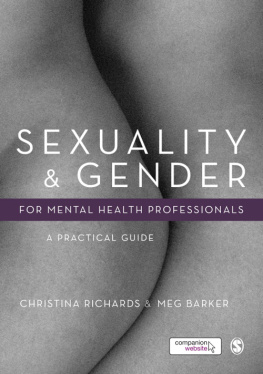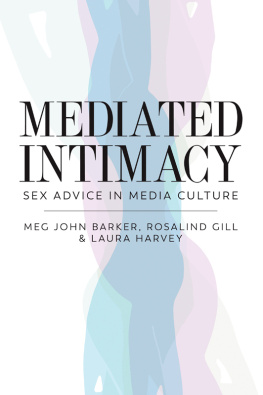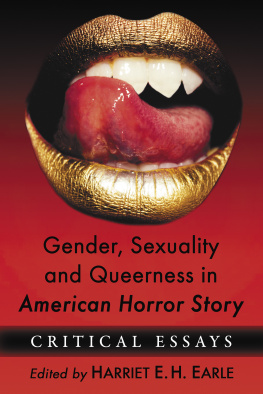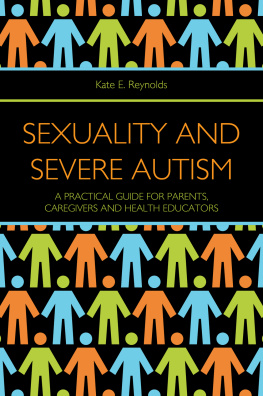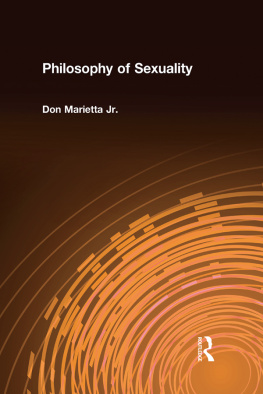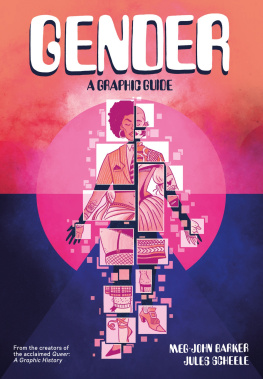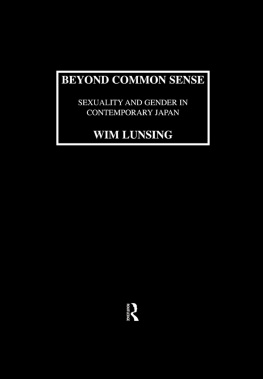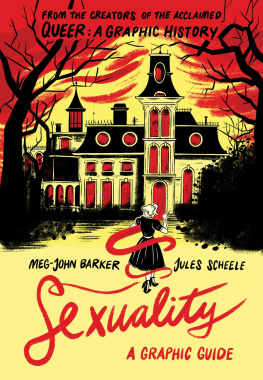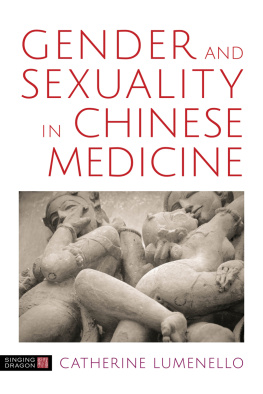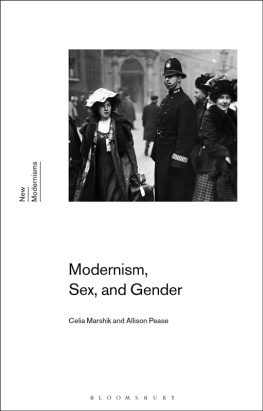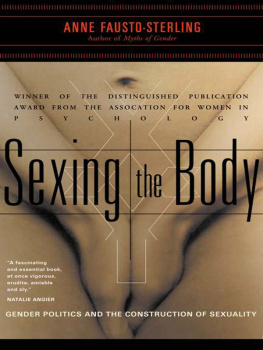

SAGE has been part of the global academic community since 1965, supporting high quality research and learning that transforms society and our understanding of individuals, groups, and cultures. SAGE is the independent, innovative, natural home for authors, editors and societies who share our commitment and passion for the social sciences.
Find out more at: www.sagepublications.com


Christina Richards and Meg Barker 2013
First published 2013
Apart from any fair dealing for the purposes of research or private study, or criticism or review, as permitted under the Copyright, Designs and Patents Act, 1988, this publication may be reproduced, stored or transmitted in any form, or by any means, only with the prior permission in writing of the publishers, or in the case of reprographic reproduction, in accordance with the terms of licences issued by the Copyright Licensing Agency. Enquiries concerning reproduction outside those terms should be sent to the publishers.
Library of Congress Control Number: 2012955051
British Library Cataloguing in Publication data
A catalogue record for this book is available from the British Library
ISBN 978-0-85702-842-6
ISBN 978-0-85702-843-3 (pbk)

SAGE Publications Ltd
1 Olivers Yard
55 City Road
London EC1Y 1SP
SAGE Publications Inc.
2455 Teller Road
Thousand Oaks, California 91320
SAGE Publications India Pvt Ltd
B 1/I 1 Mohan Cooperative Industrial Area
Mathura Road
New Delhi 110 044
SAGE Publications Asia-Pacific Pte Ltd
3 Church Street
#10-04 Samsung Hub
Singapore 049483
Editor: Kate Wharton
Editorial assistant: Laura Walmsley
Production editor: Rachel Burrows
Copyeditor: Christine Bitten
Proofreader: Sharika Sharma
Marketing manager: Tamara Navaratnam
Cover design: Lisa Harper
Typeset by: C&M Digitals (P) Ltd, Chennai, India
Printed in India at Replika Press Pvt Ltd
ABOUT THE AUTHORS
Christina Richards is Senior Specialist Psychology Associate at the West London Mental Health NHS Trust (Charing Cross) Gender Identity Clinic. She works in this capacity as an individual and group psychotherapist and psychologist. She lectures and publishes on gender, sexualities and critical mental health, both within academia and to statutory bodies such as police forces and the UK National Health Service.
Meg Barker is a senior lecturer in psychology at the Open University and a sex and relationship therapist. Meg has researched and written extensively on relationships, gender and sexuality particularly on bisexuality, BDSM and polyamory and co-edits the journal Psychology & Sexuality and co-organises the Critical Sexology seminar series.
ACKNOWLEDGEMENTS
CHRISTINAS ACKNOWLEDGEMENTS
For Meg
And For Phil
Words cant say enough.
This being my first book the reader will hopefully indulge me and forgive the length of the following list. In many ways a book is the culmination of a life so far, with thinking and morality being derived from events quite aside from the matter under consideration. Consequently I have a great many people to thank, many of whom space precludes including. Errors throughout the book are, of course, entirely my own.
Many thanks to: Penny for being such a wonderful friend and mentor; Rob and Simon for more years of friendship than I care to remember; Richard for tea and wisdom; Erich and Karen for caring in different ways; Stef for not letting me give up (I hope Ive done you proud); Richard and Mike for those memorable lunches; Helen for family; Andy for friendship in the wild; Alex for wise advice; Darren for expecting nothing but the best; James for giving me my life; my colleagues at the GIC for both friendship and seas of knowledge; my patients for the wisdom and knowledge that books cant hold; all of the activists and academics who move the fields forward Riki, Kate, Jamison, Stephen and so many more. And to those clinicians who find a way with grace Maddie, Randall, Nick a high cost we pay, but one worth paying.
MEGS ACKNOWLEDGEMENTS
I would like to thank all of the community members and activists who have been involved in my work over the past decade as participants, co-researchers, co-authors, readers, critics and supporters. I do hope that this book does you justice. Your courage and creativity continues to inspire, sustain and challenge me, and I am more grateful to you than I could possibly express.
I am also extremely grateful to Darren Langdridge. I simply wouldnt be where I am now, writing books like this, if it wasnt for your belief in me. Thank you for everything.

INTRODUCTION
Gender and sexuality are complex, and contested, to the point at which no definition can adequately encompass them. They have excited debate in academia, medicine, psychology and the personal, legal and political domains, as well as elsewhere, and no doubt will continue to do so for the foreseeable future. Of course, this creates a quandary for the busy professional who needs quick, accessible information on these important topics in order to go about the business of their day-to-day work. Should one reach for academic theoretical texts, which may be lengthy and not grounded in the reality of clients lives, or for a concise clinical text which risks compromising complexity through brevity? Or should one look to community literatures which give a grounded view, but may miss aspects relevant to clinical decision making? To some extent the answer is Yes. Given time, professionals should engage with all of these literatures, and indeed in order to become a specialist one would certainly need to. In this book, however, we have included something of each so that professionals can be confident of having a basic understanding, in a reasonable period of time, and a direction for future education as time and necessity dictate.
THE CONTENT
Most books for professionals in this area that we have come across have approached the topics in one of two ways. Some describe normal human sexuality and/or gender and include much briefer mention of those who fall outside of this in some way (quite often in a tokenistic and/or pathologising manner). Others focus specifically on genders and sexualities which fall outside of normativity, for example concentrating on sexual and gender minorities. In this book we have adopted a third way, giving equal consideration to the diversity of sexualities, genders and relationship structures, including those which are more and less normative in wider society, and considering how such norms shift across time and within different groups. Of course no book could give complete coverage to all possible identities and practices, and we have been forced, of practical necessity, to include some generalisation where in fact there is complexity, and to avoid some repetition (where practices and identities have similar issues) in service of readability. We hope, however, that we have included in an accessible manner most of the identities and practices that a professional is likely to come across during the course of their career, and have also provided the necessary information to find out more on each item.
Next page
